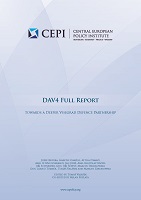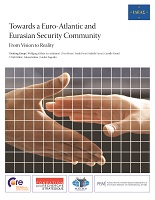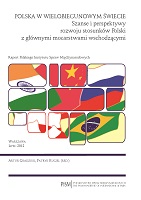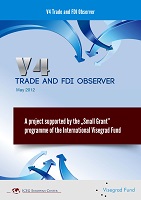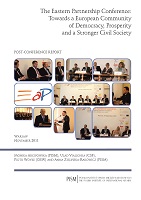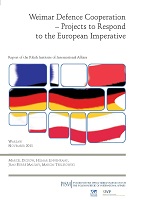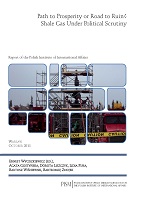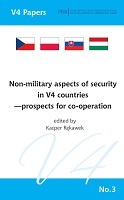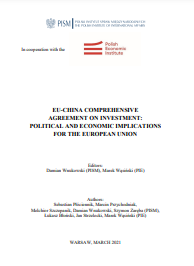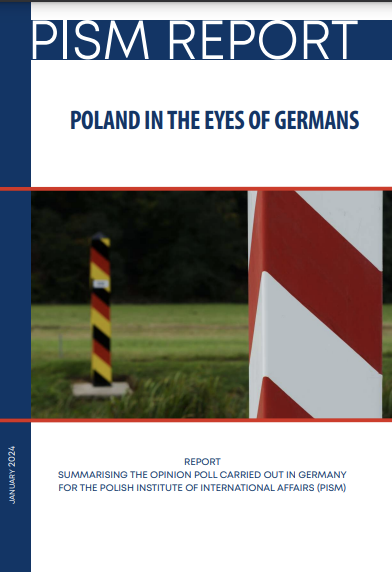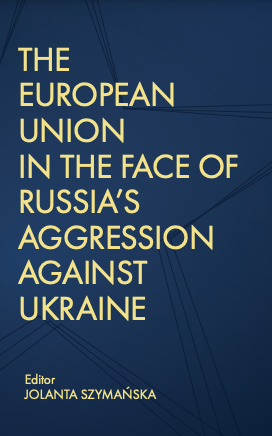EU-China Comprehensive Agreement on Investment: Political and Economic Implications for The European Union
Author(s): Sebastian Płóciennik,Marcin Przychodniak,Melchior Szczepanik,Damian Wnukowski,Szymon Zaręba,Łukasz Błoński,Jan Strzelecki,Marek Wąsiński / Language(s): English
Keywords: EU; China; EU; Investments; Agreement; Implications;
On 30 December 2020, China and the European Union concluded the negotiations of the Comprehensive Agreement on Investment (CAI). It is intended to replace bilateral investment treaties (BITs) between China and particular EU Member States. The EU and China have been in talks for seven years trying to reach agreement. The deal has yet to be signed and the text of the agreement still needs the approval of the Council of the European Union and the European Parliament. The deal was concluded mainly due to the determination of the German government, which wanted to score a diplomatic success while holding the presidency of the EU Council, and with clear political support from France. Germany was interested in keeping economic opportunities with China open, while France sought to demonstrate the Union’s growing political clout. Both countries are also major investors in China. The signing and ratification process of the CAI could be problematic given the controversies regarding the Agreement. They concern mainly its political significance but also the effectiveness with regard to access to the Chinese market, the level-playing field, and implementation of provisions regarding sustainable development. The agreement plays an important political role in the complicated relations between the EU, the U.S., and China. Since the European Commission received its mandate for the negotiations of an investment agreement with China in 2013, the international environment, China’s internal and economic policies, and EU-China relations have changed profoundly. In the “EU-China Strategic Outlook”, published in 2019, in which the European Commission assessed the state of EU-China relations and presented its prospects, apart from being described as a strategic partner and economic competitor, China is defined as a systemic rival of the EU promoting alternative models of governance. In that regard, adoption of CAI could downgrade the systemic rivalry with China in the EU’s strategic outlook. Moreover, completing the CAI negotiations by the end of 2020, just weeks before the start of the new U.S. administration, which declared a rededication to Europe, undermined the EU’s potential political leverage in relations with China and, as a consequence, Europe’s position on the global stage. CAI, in the form concluded in December 2020, is a blow to transatlantic cooperation vis-à-vis China and supports the latter in its rivalry with the U.S. However, some provisions in the agreement, such as on the services sector could be beneficial for U.S. companies, based on the WTO’s most favoured nation rule. Through agreeing to certain concessions, albeit without legal instruments for the EU to guarantee implementation of the agreement, EU companies, especially those from Germany, France, and the Netherlands - the biggest investors in China - may be in a difficult situation if CAI is ratified and they decide to invest in certain sectors. China treats bilateral economic relations through a political lens and handles them instrumentally. With increasing economic power, China exercises the growing capacity to exert pressure on foreign governments and thus could violate economic agreements, such as the recent example of the one with Australia. Moreover, the finalisation of CAI must not result in muting criticism of China’s human rights abuses and violations of international treaties. China’s regulations concerning internal security, such as the State Security Law or Counterterrorism Law, which are not affected by CAI, or the implementation of a nationwide social credit system and tighter grip on the private sector through, e.g., growing requirements to establish party cells in enterprises (as mentioned in a recent study by the European Union Chamber of Commerce in China), could hamper EU companies’ investment activities. Moreover, if China assumes wide interpretation of national security, practically every EU company’s investment can be blocked. The EU’s level of protection against China’s competitive advantage resulting from restrictions on European companies’ market access or other unfair practises will be patchwork and vary depending on the issue in question. CAI leaves out an investment protection section. Thus, the EU Member States’ BITs will remain applicable for the time being, maintaining different levels of protection for EU investors. The two-year deadline to finalise the investment protection section is toothless - there are no real incentives to bring the parties to the negotiating table and make them seek consensus. So, in the end, CAI may fail to ensure equal protection of EU investors if China refuses to engage in meaningful negotiations. Due to the limitations of the enforcement mechanism, it is unlikely the agreement will provide effective protection against unfair regulatory competition with respect to ILO standards on forced labour, freedom of association, and collective bargaining, as well as environmental standards. Ratification of CAI will not provide decent protection and is weak on reciprocity. Moreover, China has additional tools for modifying the conditions on the ground according to its own interests. Under the increasing grip on the economy that the Chinese one-party state pursues, the unpredictability in doing business in China might even increase. This scenario is probable given that China has not implemented promised structural reforms and because its mixed compliance with WTO dispute rulings challenges the organisation’s fundamental norms. The key issue regarding CAI’s effectiveness is the dispute settlement mechanism, but it is incoherent (exception for subsidies, separate mechanism for sustainability provisions) and does not guarantee comprehensive implementation of the agreement. However, even an effective dispute settlement mechanism might not prove sufficient. Large investments are difficult to withdraw instantly and without losses. Investors themselves, under pressure from Chinese authorities, might be unwilling to report violations and discrimination out of fear of retaliation that may constrain their access to the large Chinese consumer market. Thus, in practise the CAI provisions depend on the confidence in the rule of law in China and the reliability of PRC institutions, which might provide quite weak safeguards for any investment or trade agreement. This may be assessed as insufficient in providing a safe and reliable investment environment that is consequently beneficial for EU investors. Before ratification of CAI, the EU should regain some leverage on China by insisting on ratification of the ILO conventions as a prerequisite, taking into account that the lack of implementation of CAI could hit the PRC. The EU could also demand changes to national laws regarding, among others, labour conditions, as happened in the case of a similar agreement concluded with Vietnam. The EU needs to put in place autonomous measures to defend European interests vis-à-vis China before ratification of CAI. This should include an international procurement instrument; a ban on the import of products of forced labour into the EU market; human rights due diligence legislation; measures against unfair subsidies on the basis of the EU’s white paper of June 2020; the “bazooka” against economic coercion; and an enhanced investment screening mechanism.
More...
